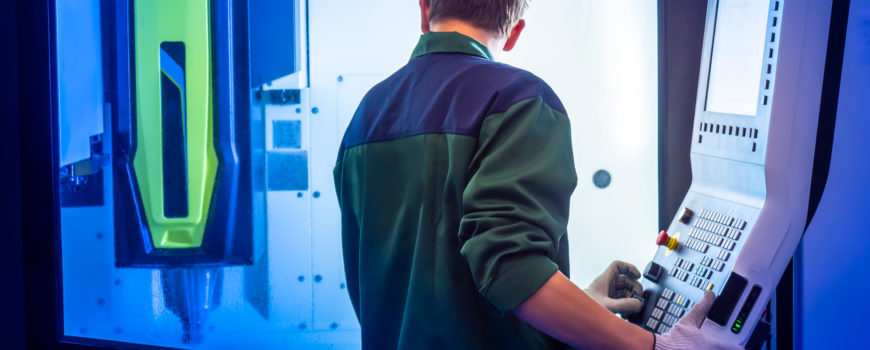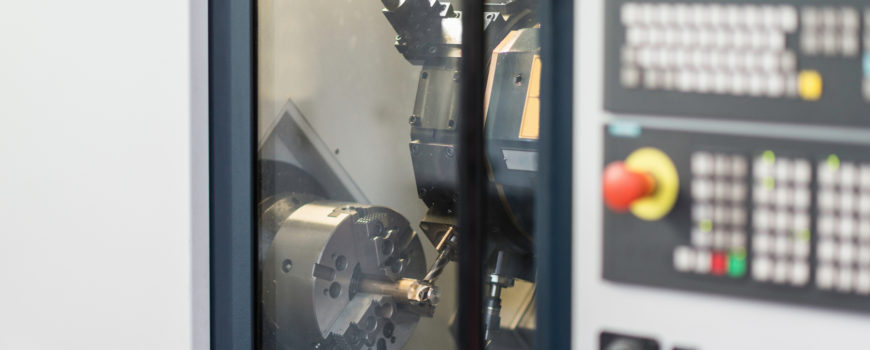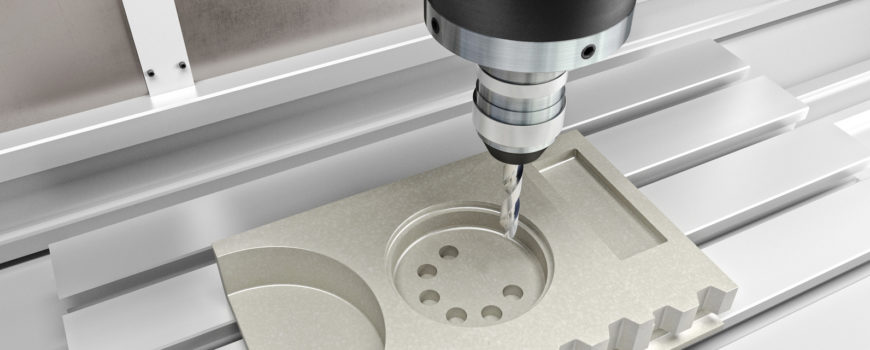At some point in his or her life, everyone has to make a decision as to what they want to be when they grow up. It is not uncommon to continue to ask oneself that question into adulthood. If you’ve ever wondered what it would be like to be a CNC machinist, we are here to lay it out for you.
According to the Bureau of Labor Statistics, there are nearly half a million CNC machinists working in the U.S. That number is expected to stay level through at least 2026. If you’re someone who likes to get your hands dirty, to really get in there and find practical solutions to problems that perplex others, a career as a CNC machinist may be precisely what you’re looking for. If you’d rather be working outside or in a custom machine shop setting than sitting behind a desk, read on. There are a number of things about CNC machining that are likely to appeal to you.
This list represents some of what you can expect to experience as a CNC machinist:
You can expect to learn on the job. Although some CNC machinists are trained at vocational schools, community colleges, technical colleges, or through an apprenticeship program, it is still common for companies to create their own training program for the CNC machinists who will be working for them. That’s because most corporations have a very specific manner of doing things, operational procedures that are not taught in other settings. If you’re someone who gets a thrill out of learning new things, the ability to learn on the job may be of benefit to you.
You can expect to be creative. Anyone who has ever worked in manufacturing, whether they were making baseball bats or secret parts for the Pentagon, knows that things can turn a little frantic when anything goes wrong. Every company is beholden to their customers and must follow strict guidelines and delivery dates. If a part is so much as a thousandth of a centimeter off, it can spell peril for the manufacturer. That’s where you come in. CNC machinists are commonly called upon to get to the root of a problem and come up with a creative way to solve it. If you’re a person who has always enjoyed puzzles, or someone who simply likes a good mystery, this job will offer you plenty of opportunities to think creatively.
You can expect to be part of a team. Teamwork is what it’s all about in this job. People count on you and you count on them to make the most of your workday. Whether operations are running smooth as silk or the sky is falling, and upper management is losing their collective minds, CNC machinists work as a team with every other employee in the company. As a CNC machinist, you can expect people to come to you on a regular basis to ask for your opinion and expertise. In turn, you can ask someone else for help when you need it. For some, it’s the camaraderie that makes the job so enjoyable.
You can expect to be know your value. What you do as a CNC machinist is so foundational to your company’s ability to operate that your absence would present a problem. At some point in their live, most people have had a job in which they felt invisible and unimportant. Nothing could be further from the truth for a CNC machinist. Without them, a business would have no way to control quality, and would be far less likely to come up with new innovations.
You can expect to channel your inner Nikola Tesla. As a CNC machinist, you will be part problem solver and part innovator. What commonly happens in the midst of a manufacturing snafu is that innovations are born that can prevent the problem from arising again. You would be the person expected to come up with innovations that work. Everyone has to start somewhere, but the more you innovate, the more confident you become. CNC machining is a job that allows you to try new things until you come across the one that works. And really, that’s how all great inventors got their start.
You can expect to change. Not everyone is adaptable, not everyone can shift the way they operate. Because of the nature of their jobs, CNC machinists become supremely adaptable, able to veer from the task in front of them to another when it suddenly becomes a priority. If you aren’t especially adaptable going into the job, you can expect to learn the skill out of necessity. Adaptability is a trait that carries over into every other area of your life and will stay with you into retirement. In an ever-changing world, the ability to adapt is priceless.
You can expect your skills to be sharpened. Just as a prize fighter become stronger through sparring, your work as a CNC machinist will hone your mental skills. Each day, you will learn something new. Each frustration (and there are frustrations) will bring with it a chance to problem solve. Every level of company hierarchy that you interact with will teach you more about how a corporation works. Through this one job, you will grow intellectually and socially. If, at some point, you find yourself moving to a new company, you will find that you can use what you learned through your first experience as a CNC machinist.
You can expect to be on the cutting edge of technology. Computer Numerical Control (CNC) machines are a blend of digital and physical technologies. In this field it is computers that provide instructions to tools of the trade, such as lathes. For example, it is a CNC machine that allows for the precise shaping of raw materials like plastics or metals. Computers are used in every step of CNC machining, and as a CNC machinist you are the person who is counted upon to understand what’s going on with each step and to troubleshoot in order to keep operations running smoothly. Your computer skills and the desire to learn more are essential for success.
You can expect every day to be different. There is no typical workday for a CNC machinist, primarily because it’s impossible to predict when troubleshooting will be needed or when engineering will change plans midstream. There is very little risk of boredom in this job, a benefit for anyone with a curious mind.
Each person on this planet has a different skill set and different goals that drive them. What most have in common is a desire to spend their workdays doing something that has purpose and offers a sense of fulfillment. If you find that CNC machining sounds like something that would fulfill you, why not take a deeper dive and learn more?






